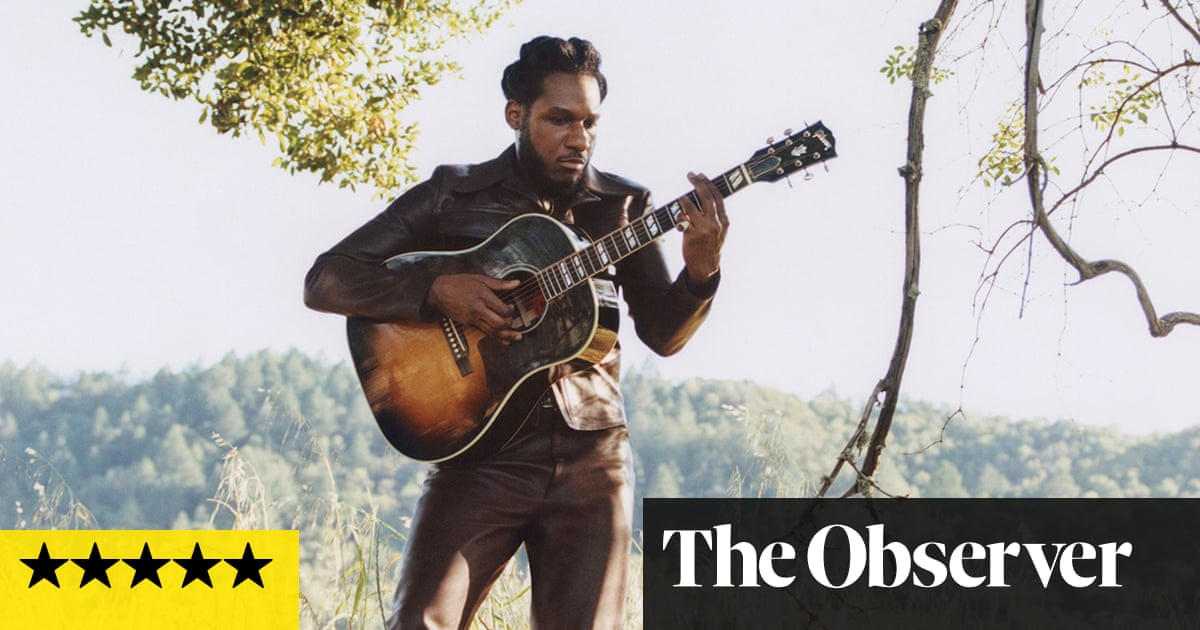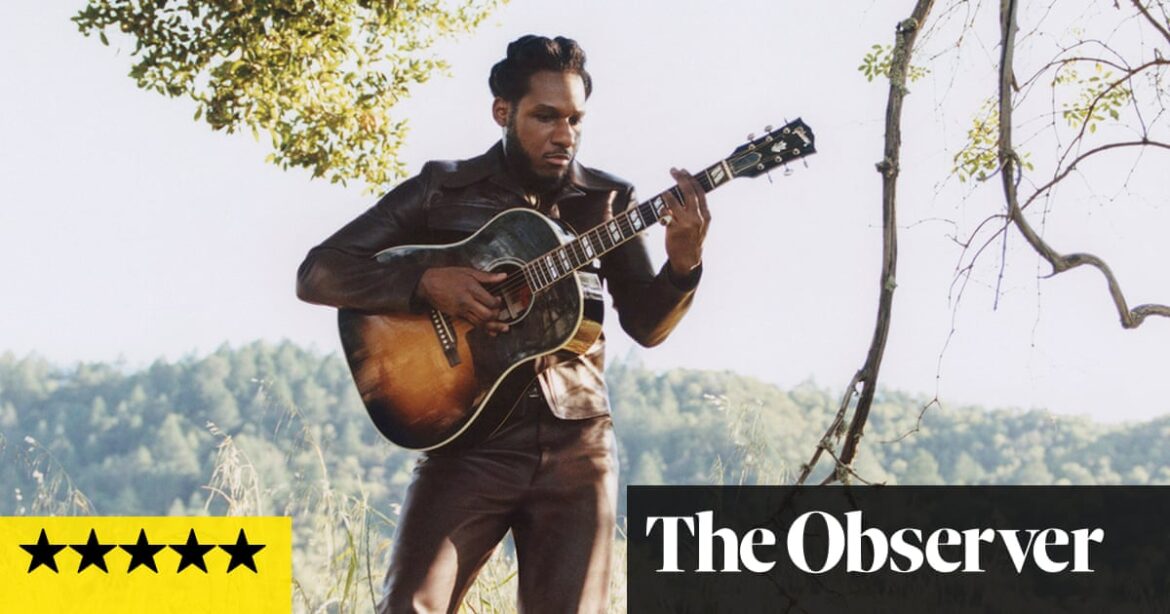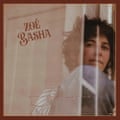
When poet of the pillowcase Leon Bridges was promoting his Gold-Diggers Sound album in 2021, he told the Guardian he wanted to become one of the few black artists making country music. “All I need is time,” he said. Well, time is always running away, and black country has since gone mainstream without Bridges’s input.
Black country star Shaboozey’s A Bar Song (Tipsy) was the American song of the summer. Still No 1 in the US singles charts after 12 weeks, it’s also topped Billboard’s Hot Country Songs chart for the past four months. Shaboozey is the only black man allowed to head the country chart in its 80-year history – Lil Nas X’s Old Town Road was excluded for reasons too racist to list here – and only the second black artist, after Beyoncé took Texas Hold ‘Em top in February.
So, to the uninformed, Bridges’s detour down country roads on Leon could look like galloping after a runaway bandwagon. That would be untrue and unfair. Born in Atlanta, raised in Fort Worth, Bridges has this music in his marrow as much as soul or R&B. Over the years he’s earned some spurs, creating songs that could be called country to varying degree, in collaboration with fellow Texan icons like Kacey Musgraves and Miranda Lambert, as well as Khruangbin on the lovely Texas Sun.
On Leon, Bridges has hardened his wings. It’s a majestic confection that borrows promiscuously from soul, country and folk but doesn’t owe any of them anything. He blends it all into what he calls his “gumbo”, a simmering mix of southern sounds, using music as a path to connect his past to his present, letting lost loves and home town nostalgia suffuse the stew.
So much great pop is about escape, or transformation. It promises that who you were yesterday – or who you were a few minutes ago, before you heard that song – can be completely different to the person you are tomorrow. Leon is an excellent collection that pictures a man approaching middle age, driving round his old ’hoods, reflecting on those feelings, after the escape. It’s a butterfly remembering how it felt to be a caterpillar.
Appropriately for songs composed around summer-maddened memories, there are inconsistencies. We get at least three “first love” songs, and they all appear to be different girls, one of whom he may not even have met. It doesn’t matter. In his vivid, fractured vignettes, Bridges nestles among the notes where other singers would hurtle through them, trying to finish their stories.
Curfews recur throughout, reminding us that summer is never as endless as its promise. Still, That’s What I Love (“Louisiana funk, second line jumping / Umbrellas in the air when there’s no rain falling”) positively wriggles with the pleasures of the season. Panther City proves it’s not all about soft life soundtracks, as Bridges audaciously hooks up country with new wave while singing about crackheads, sex workers and Nintendo 64.
Perhaps through maturity, or maybe because he’s recalling chaster days, Bridges is less horny than usual (although Ghetto Honeybee kindly offers “let me whisper freaky things on the phone”). As always with religious soul singers, it’s never quite clear how this side of Bridges is supposed to reconcile with the comparative pieties of songs like When a Man Cries and God Loves Everyone. And it’s a shame that his ruminations on the heartland don’t find more time to weigh the politics of our times, having sung so gracefully about George Floyd on 2020’s Sweeter.
But Leon isn’t a puzzle to be figured out. It is, more than most, just a suite of exquisitely expressed feelings, and the way Bridges sings makes everything feel unassailably real and true. It doesn’t have to add up. His songs are gorgeous, neither too obviously in debt to the past nor distractingly future-focused, all transported heavenwards by that beguiling, church-shivering voice.
Source: theguardian.com



